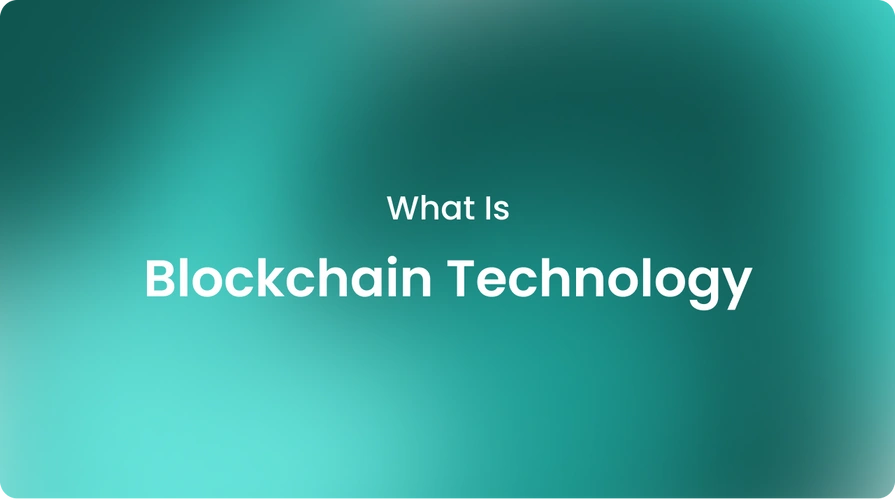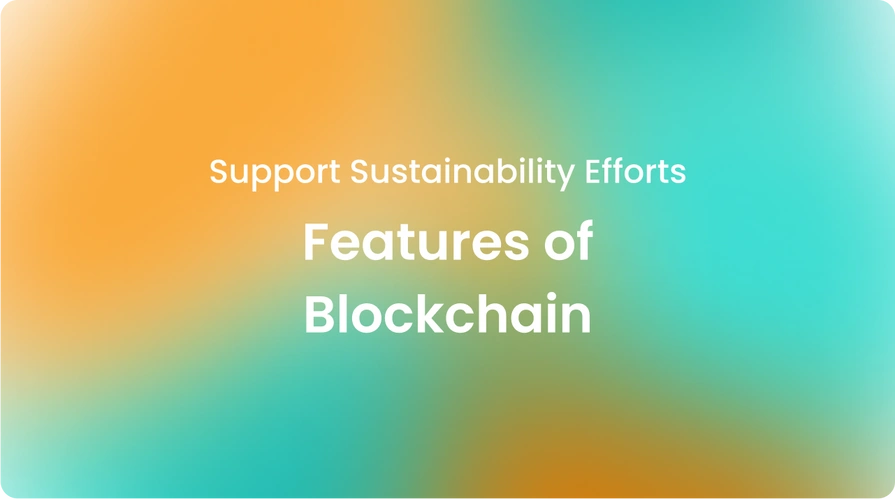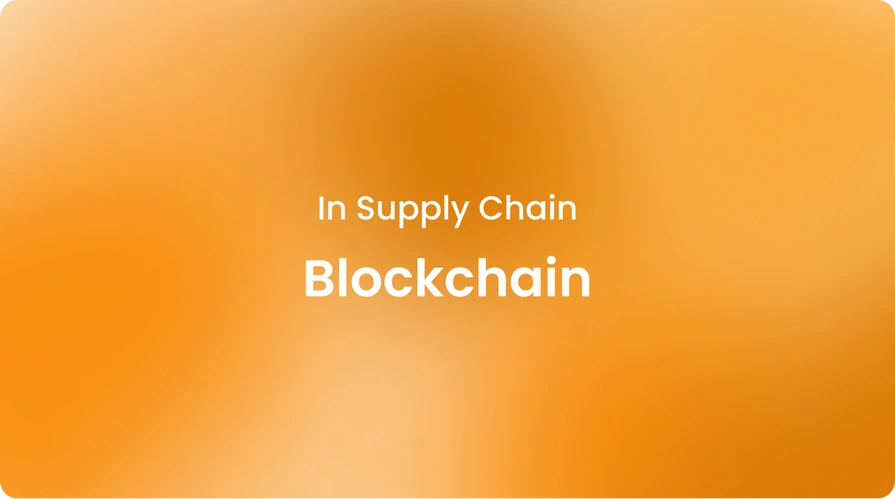|technology, knowledgehub
Is Blockchain the Future?

Blockchain technology has widespread potential to positively impact society across borders, but is blockchain the future? Join us in this article as we discuss how blockchain is emerging globally, how it will change our interconnected world for the better, and future predictions.
We will also examine how industries are motivated to adopt this innovative distributed ledger technology (DLT) and the significant impacts it could have. Understanding blockchain's applications today and predictions for the future will allow you to see exciting opportunities ahead.
Some say blockchain will transform our future just as much as the internet. As an incorruptible digital ledger, it has qualities that could disrupt systems worldwide. The decentralized, trustless nature of networks enables fast, transparent transactions across borders without middlemen.
This provides financial inclusion for the estimated 1.7 billion unbanked people in India, or 85% of those who lack access. Therefore, the future of blockchain looks bright. Let’s continue to explore!
What is the rise of blockchain technology?
Adoption of blockchain technology is rising as governments, organizations, and people recognize blockchain's security and efficiency.
The global blockchain market grew rapidly from $3 billion in 2020 to over $6 billion in 2022, according to Statista. Experts predict that the global blockchain market will continue to grow at a rate of over 60% annually through 2030.
Industries leverage DLT for benefits such as immutability, provenance, and reducing third parties. Regulations also drive acceptance, such as the European Union's Markets in Crypto Assets Regulation framework, which launches in 2024.
Additionally, the SEC approved the Bitcoin ETF in January 2024. This approval enables investors to gain exposure to digital assets without the need for crypto exchange registration. Therefore, the rise of blockchain technology is likely to expand even further with this news.
What inspires blockchain technology?
There are several motivators behind blockchain's rise. By verifying transactions on distributed ledgers, transparency builds trust. Interoperability enables collaboration between ledgers. Automated "smart contracts" cut costs by enforcing agreements without intermediaries.
Furthermore, energy use encourages the transition to more efficient networks, such as proof-of-stake, over energy-intensive crypto mining. Ultimately, placing trust and value exchange in the hands of users themselves is a powerful driver for widespread adoption of this decentralized technology.
You can read "Features of Blockchain that Support Sustainability Efforts" and "Blockchain in Supply Chain" to learn more about how blockchain ensures global trust, transparency, and efficiency.
What is the blockchain's most significant impact?
If fully realized, the impact of blockchain could be wide-ranging. On a societal level, its distributed nature lends itself well to enabling transparent governance and voting systems. It could revitalize civic participation by removing central points of failure and ensuring integrity.
The World Economic Forum estimates that blockchain technology will store 10% of global GDP by 2027. It is predicted that this figure could enable $3.1 trillion in new business value by 2030 as organizations leverage blockchain to streamline processes, unlock efficiencies, and develop new business models.
Environmentally, blockchain proponents argue its frictionless value exchange could one day help build a more sustainable sharing economy by optimizing asset utilization through technologies like decentralized rental platforms.
When aggregated on a vast scale, even minor resource savings per transaction could translate to significant global ecological benefits over time.
Blockchain's applications in various industries
Adoption of blockchain is rising as governments, organizations, and people recognize the security and efficiency of blockchain through their evolving understanding of its definition.
Let's explore how several sectors are already putting blockchain to work:
Financial services
Crypto service providers like Cryptobunq are leading the charge in using blockchain for digital banking, payments, auditing, and more. As a one-stop shop crypto service provider, CBQ offers crypto checkout and invoicing, batch crypto payments, crypto exchange API, and more services.
Additionally, the EURK euro stablecoin facilitates fast, low-cost cross-border payments and e-commerce payments. Looking ahead, the value of decentralized finance and decentralized applications continues to climb with these kinds of innovations.
Supply chain management
Blockchain brings needed transparency to global supply chains. Companies utilize it to trace goods, certify origins, automate paperwork, and prevent counterfeiting. Each year, inefficiency and waste cause the loss of over $1.4 trillion worth of food; blockchain may help address this.
Healthcare
Pixelplex reports that over 55% of healthcare applications will incorporate blockchain by 2025. It ensures privacy while allowing for secure, access-controlled storage and sharing of patient records while ensuring privacy.
Where will blockchain technology be in 5 years?
If current momentum continues, blockchain technology looks set to achieve far greater mainstream adoption and real-world impact within the next half decade.
Blockchain financial services, such as tokenization in digital banking, will become everyday occurrences, competing directly with traditional competitors.
Customers will drive supply chain transparency powered by blockchain to become an expectation across industries by demanding proof of ethical, sustainable sourcing. This may drive further reductions in waste.
Decentralized platforms could put individuals in control of their personal data, replacing current centralized models and enabling new participatory health approaches.
New industries may emerge around decentralized applications (dApps), offering services like identity management, credentialing, decentralized autonomous organizations, and more.
Privacy coins and layer 2 scaling solutions will likely become the norm, facilitating trillions of microtransactions across IoT networks with near-instant settlement.
In the future, which industries will use blockchain?
If projections hold true, blockchain integration will accelerate across virtually every sector within the coming decade.
- Energy and utilities facilitate autonomous renewable energy trading, tracking carbon credits, and optimizing infrastructure.
- Insurance streamlines claims, empowers peer-to-peer models, and automates payouts.
- Media and entertainment could streamline NFT marketplaces, royalty tracking, subscription monetization, and authenticating digital content ownership.
- Government systems could provide more transparent voting, licensing, document notarization, and citizen services.
- Real estate could digitize titles, streamline transactions, and enable fractionalized property investments. Real estate is already in transformation with real estate tokenization, so this could go further with the innovations in blockchain technology.
To sum up, the future of blockchain appears bright across industries seeking new efficiencies, transparency, and innovation. Continued development may finally realize its full promise in various other industries, too.
Which industry will benefit most from blockchain?
If current applications are any indication, finance and supply chain management will have the most to gain from blockchain in the near term. The financial sector represents over 29% of the total blockchain market share, according to Markets and Markets.
By integrating secure crypto services from Cryptobunq, businesses can start leveraging the growing crypto economy and its opportunities for reducing costs. Additionally, they can adapt to the future and surpass their competitors in the long run.
At the same time, blockchain provides much-needed oversight over notoriously complex global supply networks. Given annual multi-trillion-dollar losses to inefficiency and fraud, food and pharmaceutical supply chains, in particular, stand to reap major rewards.
The EURK euro stablecoin also holds promise for enabling affordable, transparent crypto payments that include the 1.7 billion individuals currently without bank accounts. Secure stablecoins are expected to enhance the power of stablecoins by offering stability over volatility, exemplified by EURK.
How will blockchain change the future and what should you do?
Blockchain's capacity to decentralize trust, streamline activities, and cut intermediaries looks poised to fundamentally change how value and information flow in the digital era.
While predictions are difficult, increased adoption across sectors seems inevitable. For forward-thinking individuals and organizations, some advice includes:
- Begin educating yourself on blockchain terms and selectively experiment with promising applications. You can check out CBQ case studies and CBQ blogs to broaden your knowledge about the crypto and blockchain ecosystems.
- Evaluate your industry for opportunities to reduce costs, boost transparency, and develop new revenue streams through blockchain.
- Partner with leaders at the forefront, such as Cryptobunq, who offer full-service solutions that make blockchain integration seamless.
- Consider how the crypto economy may enable novel business models or provide your customers with new opportunities in the future.
- To stay on the right side of regulation as adoption grows, keep up with legislative developments.
By proactively exploring blockchain's potential, you give your firm the option to lead industry transformation. Its impacts promise rich rewards for early adopters, while raising questions we're only beginning to answer. Exciting times lie ahead as this emerging technology fulfills its distributed vision.
Transform your business with the innovations of blockchain technology and adapt to the future. Cryptobunq is here to guide you through and offer expert crypto and blockchain services, from tokenization to custody and wallet. Contact us today and explore the benefits of blockchain with CBQ!













